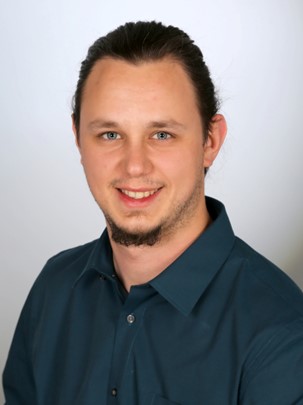Get to know Thomas Köhler from TNO!
Thomas is a scientist in the Powertrains research group at TNO and has a master’s degree in Mechatronics. In iSTORMY he is part of the project team at TNO, focusing on battery remaining useful life software development.
What was your original motivation to become a researcher/project manager?
Working in automotive industry as software design engineer before joining TNO, I noticed a lot of unused potential for efficiency increase in electrified vehicles. As a researcher, I do not only see the chance to have a positive impact on exploiting this potential. I also see the possibility to create links between different industries and have them learn from each other. In iSTORMY, we work on innovative approaches – partly based on our automotive research – and apply them to energy storage systems. This is something I find very exciting about the project.
What is your (main) research area today?
I am involved in the development of novel algorithms with respect to battery management and remaining useful life, but I mainly focus on integrating and applying our algorithms in systems where they can really unfold their impact. This can be anything, either road vehicles, ships or – as in iSTORMY – energy storage systems.
What is the main focus of your team in iSTORMY?
One of the aspects that TNO is working on in iSTORMY is to predict the remaining useful life (RUL) of batteries. TNO has explored a few RUL methods based on simulations or available data. iSTORMY gives us the possibility to apply them on a demonstrator system. My job is to further develop and tailor one of the approaches to the demonstrator. At the same time I am working on software that will run in real-time on the demonstrator to gather and pre-process the required data.
Could you describe your favourite moment/satisfaction when working for the project and – more in general – for your organisation?
I think the moment of highest satisfaction in this project is yet to come – with the start of the demonstration in France next year. However, I already find the thought very satisfying that we will see our algorithms and test software running on a real system, being able to show under realistic conditions what they are capable of.
How do you expect iSTORMY results will affect your organisation and the energy storage sector?
For our organization, iSTORMY will mean a big step forward with respect to battery remaining useful life algorithms and thus help us to further optimize the use of batteries with respect to lifetime and costs. This impact goes far beyond the iSTORMY project. But also the energy storage sector will benefit from it: Longer battery lifetime means lower costs and environmental impact, lowering the economic and social hurdles to scale up ESS to the extent needed to steer our world into a fossil-free future.
Which partner would you like to nominate next for this coffee break?
I would like to nominate CEGASA.
